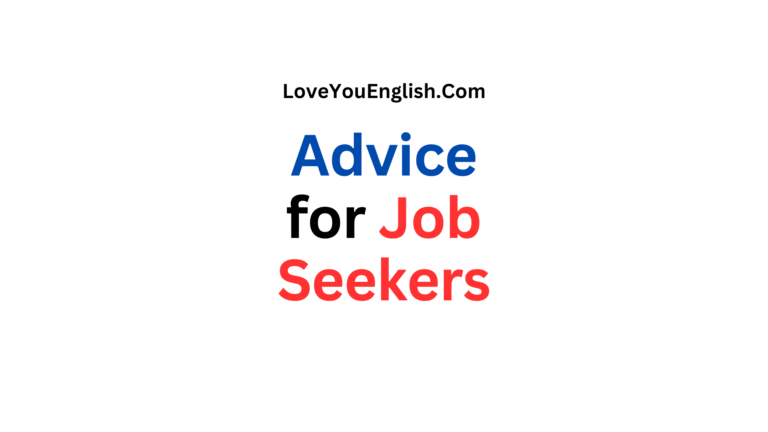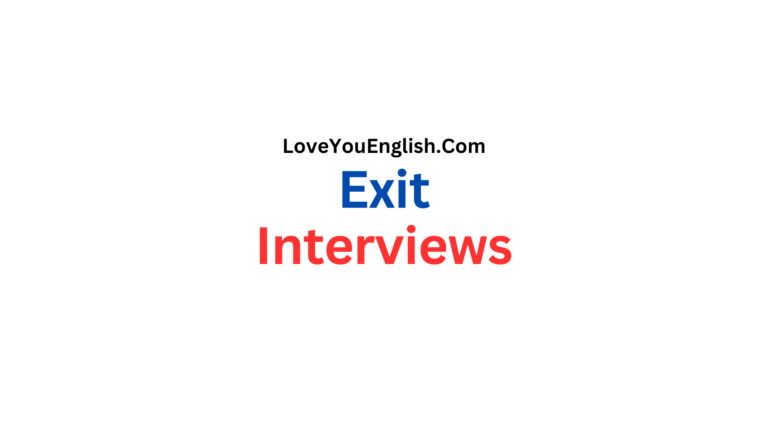How to Ace a Panel Interview (Tips & Common Questions)
A panel interview is a common method used by employers to evaluate candidates for a job.
Instead of one interviewer, you’ll face multiple people at once, each asking questions from their own perspective.
This can be a little intimidating, but with the right preparation, you can handle it confidently and increase your chances of success.
In this post, I will guide you through the steps to ace a panel interview, covering key tips and providing examples of common questions you might face.
What is a Panel Interview?
A panel interview is a job interview where multiple interviewers, usually from different departments or with different expertise, ask you questions.
The panel may include a hiring manager, team members, HR representatives, or even senior executives. The goal of this type of interview is to get a comprehensive understanding of your qualifications, skills, and personality from different perspectives.
Panel interviews can be nerve-wracking, but remember, they are designed to help the organization find the best candidate for the job. The more prepared you are, the better your chances of standing out and making a positive impression.
Why Do Employers Use Panel Interviews?
Employers use panel interviews for several reasons:
- Objective Decision-Making: Having multiple interviewers helps ensure that the decision-making process is fair and balanced. Each interviewer can evaluate different aspects of your skills and experience.
- Time Efficiency: A panel interview allows multiple team members to ask questions in one session, saving time for everyone involved.
- Diverse Perspectives: Different panelists may look for different qualities in a candidate. For example, the HR person may focus on cultural fit, while the hiring manager may focus on your technical skills. This helps ensure that all aspects of your qualifications are considered.
Tips for Acing a Panel Interview
Panel interviews can feel overwhelming, but with the right approach, you can handle them with confidence.
Here are some practical tips to help you prepare:
1. Research the Panelists
Before the interview, find out who will be on the panel. Look them up on LinkedIn or the company’s website to understand their roles and backgrounds. Knowing who they are can help you tailor your answers to address their interests. For example, if the hiring manager is focused on your technical skills, you can emphasize your expertise in that area when they ask questions.
2. Practice Speaking to Multiple People
In a panel interview, you will likely be looking at multiple people while answering questions. This can be a little tricky because you want to make eye contact with everyone, not just the person who asked the question. Practice speaking to a group of people by having a friend or family member ask you questions while others listen. This will help you feel more comfortable when you’re faced with multiple interviewers.
3. Stay Calm and Confident
It’s easy to feel nervous when facing several interviewers, but staying calm is key. Take a deep breath before answering each question, and focus on staying composed. Remember, the panel is not trying to intimidate you—they are looking for the right candidate. Being calm and confident will make a positive impression.
4. Be Clear and Concise
Panel interviews often involve several interviewers asking a variety of questions, so it’s important to be clear and concise in your responses. Avoid rambling or giving overly long answers. Focus on answering the question directly and to the point, while providing relevant details that showcase your experience and skills.
5. Engage with Everyone on the Panel
Make sure you address everyone on the panel, not just the person who asked the question. When answering, look at each interviewer briefly to make sure everyone feels included in the conversation. This shows that you are comfortable in a group setting and that you value everyone’s perspective.
6. Be Prepared for Different Types of Questions
In a panel interview, each interviewer may ask different types of questions. One might ask about your technical skills, another might focus on your teamwork abilities, and someone from HR might ask questions about your personality or how you fit with the company culture. Prepare for a variety of questions to ensure you’re ready for anything.
7. Ask Questions
At the end of the interview, the panel will likely ask if you have any questions. Always have a few thoughtful questions prepared. This shows that you are interested in the company and the role. It also gives you a chance to gather more information to help you decide if the job is right for you. You could ask about team dynamics, company culture, or opportunities for growth.
Common Panel Interview Questions
Knowing the kinds of questions you might be asked can help you prepare.
Below are some common panel interview questions, along with tips on how to answer them:
1. Tell Us About Yourself.
This is often one of the first questions in any interview, and it’s a great opportunity to introduce yourself. Keep your answer brief and relevant to the job.
Highlight your qualifications, experience, and skills that make you a good fit for the position. Avoid going off-topic or talking too much about personal details.
Example Answer:
“I have five years of experience as a software developer, where I’ve worked on several large-scale projects. I’m skilled in Python, Java, and C++, and I’m passionate about building software that improves user experiences. I’m excited about this opportunity because I believe my skills align with the needs of your team, and I’m eager to contribute to your company’s success.”
2. Why Do You Want to Work Here?
This question helps the panel assess your motivation for applying. Show that you have researched the company and that you understand its values and goals.
Explain why you’re excited about the role and how it fits with your career aspirations.
Example Answer:
“I admire your company’s commitment to innovation and sustainability. After researching your recent projects, I’m excited about the chance to contribute to the team and help you develop new solutions that benefit both your clients and the environment. I also believe this position aligns well with my career goals of working in a collaborative, forward-thinking environment.”
3. What Are Your Strengths and Weaknesses?
This question is designed to assess your self-awareness. When discussing your strengths, focus on qualities that are relevant to the job. For your weakness, choose something that you’re actively working on improving, and explain how you are addressing it.
Example Answer (Strengths):
“One of my key strengths is problem-solving. I enjoy tackling complex challenges and finding creative solutions. For example, in my last job, I developed a new system that improved our workflow efficiency by 20%.”Example Answer (Weaknesses):
“One area I’ve been working on improving is my public speaking. While I’m comfortable in one-on-one settings, I’ve been taking courses and practicing to improve my presentation skills, and I’ve already seen progress.”
4. How Do You Handle Stressful Situations?
The panel wants to know how you manage pressure and stay productive. Share examples of how you’ve handled stressful situations in the past, and highlight any techniques you use to stay calm and focused.
Example Answer:
“In stressful situations, I prioritize my tasks and focus on staying organized. For example, during a recent project, I faced tight deadlines and multiple competing priorities. I created a to-do list, broke the project into smaller tasks, and communicated with my team to make sure we stayed on track. This helped me stay calm and meet all the deadlines.”
5. Where Do You See Yourself in Five Years?
This question is about your career goals. It shows the panel how you envision your future and if the company’s growth aligns with your aspirations. Be realistic and focus on how you plan to develop professionally.
Example Answer:
“In five years, I see myself in a leadership role within the company, possibly managing a team of developers. I’m excited to continue learning and growing in this field, and I hope to contribute to innovative projects that help the company expand its impact.”
Final Thoughts
A panel interview may seem intimidating at first, but with the right preparation, you can handle it with confidence.
By researching the panelists, practicing your answers, and staying calm, you’ll be well on your way to impressing your interviewers.
Remember, the goal is not only to showcase your skills but also to demonstrate that you’re a good fit for the team and company.
Good luck!
Read more:
- Body Language Tips for Your Next Job Interview
- Interview Strategies for Introverts
- Career Break Guide: Definition, Reasons and Tips
- A Comprehensive Guide to Career Aspirations
- Mastering Interview Vocabulary Like A Pro








